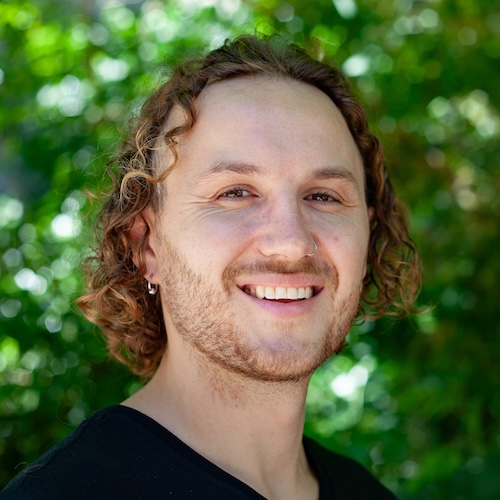
Patrick Smallhorn-West
Projects
7
Publications
25
Awards
0
Biography
My research focuses on the intersection between conservation and
food security, with a particular focus on small-scale fisheries, which account for 90% of all fishers and 40% of global fisheries yields. While my background is in coral reef science and ecology, I also work on marine governance, co-management, conservation planning, and impact evaluation. I am also passionate about human rights and the role that international conservation organizations play in supporting equity and inclusion, and a human rights-based approach more broadly.
I am currently a lecturer at James Cook University, and work closely
with both international conservation and development organizations, in
particular the Wildlife Conservation Society (WCS) and WorldFish. Prior to my current position I was jointly funded by WCS and WorldFish to help develop the new WCS Community Fisheries strategy, conduct high-level research on the intersection between human rights and marine conservation, and research small-scale fisheries management in Solomon Islands, Vanuatu, Bangladesh, and Tonga.
My current research program is divided into two thematic areas:
Theme 1: The WCS Community Fisheries strategy
(From the WCS Community fisheries playbook)
Based on decades of work in coastal communities, we have developed a strategy that crystalizes the goal shared by fishers and other coastal stakeholders worldwide: a vision of just and regenerative fisheries that equitably benefit nature and people. We are not only looking to slow declines in communities, coastal ecosystems and fisheries, but to reverse them to restore fisheries to their full social, economic, and environmental potential.
Our current research workstreams are:
- Mainstreaming equity and inclusion within all aspects of WCS work with community fisheries. This includes high level assessments of NGO policies and practice.
- Monitoring and evaluation of all aspects of community fisheries – ecological, fisheries, and socioeconomic, in ways that deliver clear and locally actionable knowledge of the impacts of interventions.
- Elevating community fishers and strengthening their organizational capacity to participate fully in coastal governance.
- Practicing effective co-management – evaluating and integrating the latest research on fisheries co-management into best practice.
- Incentivizing responsible fishing that addresses unsustainable practices such as destructive fishing, illegal, unreported, and unregulated fishing, and bycatch.
You can access the WCS Community Fisheries playbook and strategy
here.
You can access the Fisheries Co-Management Guidebook here.
Theme 2: Pacific fisheries co-management
Fisheries co-management occurs in many countries, but its heart lies in the Pacific. I work in this region to understand how small-scale fisheries can be effectively governed by relationships between communities and government. Since 2016 I have been collaborating with the government of Tonga to support the management and monitoring of their marine ecosystem and inshore fisheries. Specifically, my research is focused on supporting the Tongan Ministry of Fisheries research priorities.
Our current research workstreams are:
- Health status of Tonga’s coral reef ecosystems and the fisheries that they support.
- Economic value of Tonga’s inshore fishery and its contribution to national GDP.
- Understanding the impacts of Tonga’s Special Management Area program – the ecological, fisheries, and socioeconomic impacts from their national co-management program.
- Streamlining monitoring and evaluation protocols and training – how to develop efficient and locally actionable monitoring programs.
- Understanding Tonga’s volcanic archipelago – impacts of the 2022 volcanic eruption, mapping marine life and recovery around Tonga’s outer islands, potential UNESCO World Heritage value of Tonga’s volcanic islands.
You can access the 2020 Tonga Special Management Area Report here.
You can watch a video of our work on Tonga’s volcanic archipelago here.
Research
Research Interests
Inclusive governance of small-scale fisheries, including co-management, community-based marine management, and locally managed marine areas.
Impact framing and conservation planning. Counterfactual analysis, ecological and socioeconomic monitoring and evaluation.
Coral reef ecology. Using underwater visual surveys and experiments to address ecological questions on coral reefs.
Projects
Teaching
Research Advisor Accreditation
Advisor Type
Primary
